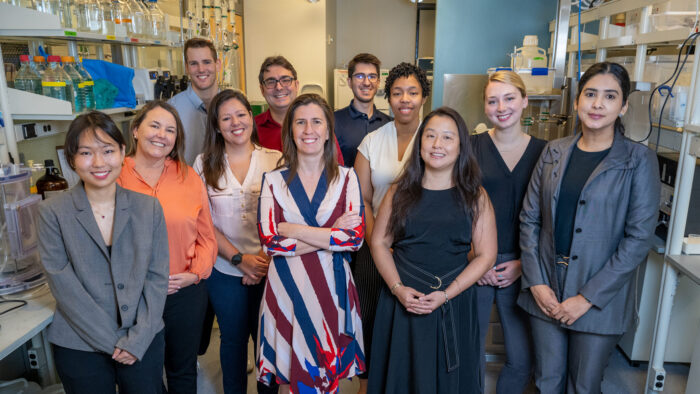Our Department
The Texas Heart Institute (THI) is a leader in cardiovascular research including one of the most promising areas of medicine today, Regenerative Medicine. To lead the world in creating, translating, and delivering novel solutions for cardiovascular repair and regeneration, THI launched the Regenerative Medicine Research Department (RMR) in 2012.
Research is focused in several key areas, including:
- Developing new cell and gene therapies for heart and vascular disease
- Building a heart in the lab
- Identifying sex differences in heart disease therapies
- Treating aging as a failure of endogenous repair
- Engineering new solutions for pediatric heart disease
- Identifying mechanisms of heart failure with preserved ejection fraction
The department’s laboratories include a College of American Pathology accredited Biorepository and Biospecimen Core Laboratory and the Organ Repair, Regeneration & Research Laboratory (OR3). Both laboratories are part of the Regenerative Medicine Research Department. Led by Camila Hochman Mendez, MSc., PhD, the Department is a place where scientists, engineers, physicians, veterinarians, and business managers can interact, collaborate and conduct promising research.
The RMR’s training programs include pre-and postdoctoral fellowships; competitive summer internships for high school and college-level students; and partnerships with various educational institutions in the Texas Medical Center. The department’s educational offerings emphasize the importance of an entrepreneurial spirit and mentorship, both in the lab setting and in navigating the complexities of research administration and funding.

“Building hearts is not just about science. It’s about creating a team that gets it, lives it, and makes it real.”

Launched in 2012, the RMR is led by scientist and researcher Camila Hochman Mendez, MSc., PhD. Under her direction, the RMR helped to solidify THI as a leader in adult stem cell therapy, which is one of the most promising hopes for treating cardiovascular disease. Helping to shape and train the next generation of medical researchers is of critical importance to the RMR team.

.svg)


